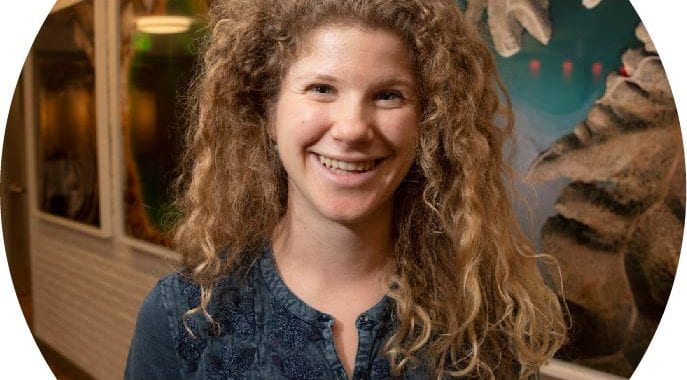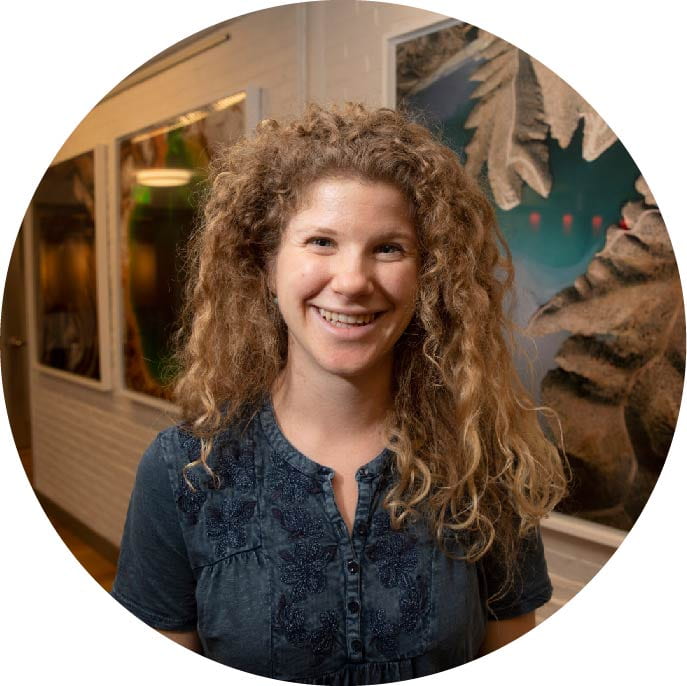We are delighted to welcome our new Science & Justice affiliate, Tamara Pico! Dr. Pico is a postdoctoral scholar and incoming Assistant Professor of Earth & Planetary Sciences who researches ice sheets, landscapes, and the social cultural histories of the geosciences. While completing her PhD in Earth and Planetary Sciences at Harvard University, she also focused on a secondary field in Women, Gender, and Sexuality Studies, making her fit right into our culture here of fostering transdisciplinary conversations and projects centered around justice and the sciences.
At her Works-in-Progress talk on February 24, 2021, titled “Linking Past to Present in a Postcolonial Field Science: Towards Critical Studies in US Geology,” Dr. Pico discussed the ways in which scientific racism was embedded in 19th century early U.S. geology (during the founding of the discipline) and how many of these assumptions and practices continue to shape the culture and values of geoscience today. Beginning with the story of John Wesley Powell, who led the 1869 Powell Expedition—the first U.S. government-sponsored expedition through the Colorado River into the grand canyon—Dr. Pico described how racist ideologies shaped the work of major figures in the field. For example, Powell wrote about finding ways to prove the inferior, “barbaric” status of the Ute people inhabiting the canyonlands and indigenous peoples more broadly, and wrote government reports recommending Native American assimilation.
After offering further examples of the racist assumptions baked into the work of leading early geologists, Dr. Pico discussed how these assumptions motivated earth system studies — they are not peripheral to the field but have always been a core part of studying the earth system. She then asked: What parts of those practices from 19th century geology do geoscientists still have and use today? Through “Linking past to present in a postcolonial field science,” she discussed some ways these early frameworks of scientific racism still show up today: 1) through concepts of “the outdoors” and undergraduate recruitment; and 2) through the absence of historical knowledge of the field’s original links to racism, imperialism, and colonialism in standard undergraduate geology programs.
During the question & answer session, the conversation took a number of turns, illustrating the importance of beginning to build a historical knowledge base to educate those entering the discipline. Participants discussed geology’s understanding of and approach to climate change; the field’s deep ties to the oil industry; the literal clothes and outfits worn by geoscientists conducting fieldwork; and conducting research projects in conjunction with local communities as full research partners and beneficiaries of the knowledge created. The meeting ended with a provocative question: to shift training practices in the geosciences, is it enough to simply include the racist and masculinist history of the field when teaching undergraduates, or might there be a need to more fundamentally shift geological and ontological ways of knowing the earth’s materiality and its systems? After the participants offered multiple perspectives on this question, Dr. Pico remarked that she is inspired by the many ways that people know and can sense the earth, which she believes that geologists are now starting to grapple with more seriously.
Dr. Pico is currently collaborating on a project related to training geoscientists: GeoContext


